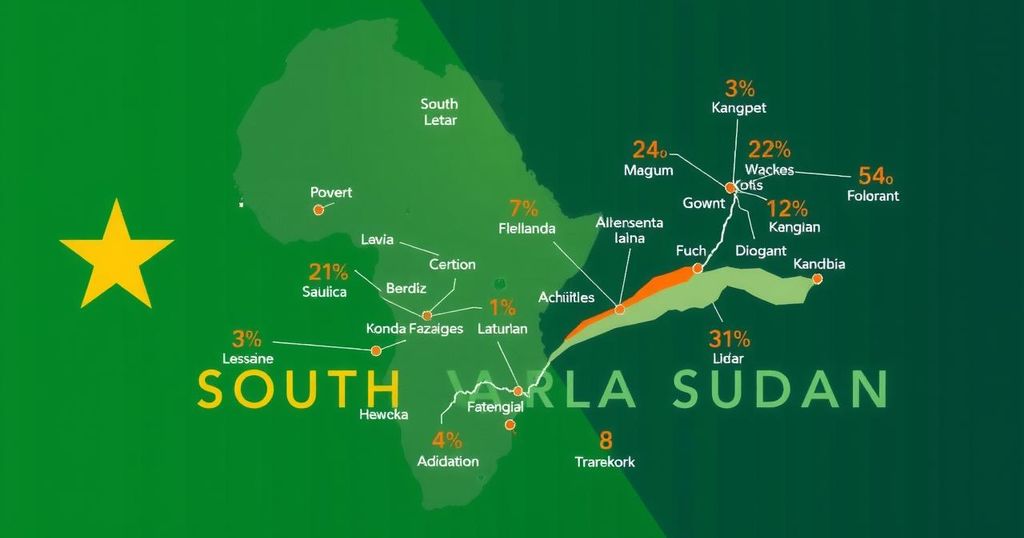South Sudan Suspends Controversial Fuel Levy in Response to Economic Pressures
The South Sudan Revenue Authority has suspended a controversial fuel levy, the E-petroleum Accreditation Permit fee, due to widespread complaints from businesses and aid organizations. Initiated in March 2024, the levy was deemed illegal and a burden on the struggling economy, affecting fuel prices and humanitarian supply chains. The SSRA’s action to remove the fees aims to alleviate these pressures, while past legal challenges to the levy highlight ongoing issues in fuel import regulation.
The South Sudan Revenue Authority (SSRA) has recently suspended a controversial levy imposed on petroleum products transported to Juba from Kenya. This decision follows nearly seven months of enforcement that began in March 2024, after multiple stakeholders, including businesses and non-governmental organizations, raised concerns regarding the levy’s legality and its detrimental effects on an already fragile South Sudanese economy. The E-petroleum Accreditation Permit fee was criticized for exacerbating fuel prices, with aid organizations fearing it could hinder the delivery of vital humanitarian supplies to South Sudan. The controversy primarily revolves around Crawford Capital International Ltd and its South Sudan-based subsidiary, Capital Pay Ltd, which were engaged by the South Sudanese government to collect the levy from fuel importers at various Kenyan exit points. There were allegations that these firms exploited importers and exporters by imposing excessive fees for the certification required to transport fuel to South Sudan. Consequently, on October 5, 2024, the SSRA formally requested the immediate elimination of all fees related to the Trade Accreditation Permit Certificate while maintaining its mandatory status at no charge. SSRA’s Commissioner for Corporate Services, Daniel Kon Ater, emphasized the need for this action due to the adverse impact it had on commodity prices in the market. Dr. Ater stated, “The South Sudan Revenue Authority (SSRA) would like to request the removal of all charges and fees related to the Trade Accreditation Permit with immediate effect. However, the certificate should remain mandatory free of charge as mentioned. The reason being the negative impact it is creating against commodity prices in the market.” The charges in question included fees of $0.03 per litre for the E-petroleum Accreditation Permit and $0.024 per litre for fuel marking, which collectively resulted in costs of approximately $1,944 for a single truck transporting 36,000 litres. The revenue generated from these levies was designated for maintaining the operations of Crawford Capital Ltd, which is involved in supporting South Sudan’s e-government systems. Despite the SSRA’s recent position, a High Court ruling earlier this year declined to halt the levy’s implementation, backing Crawford Capital’s role as a customs agent appointed to facilitate fuel import processes.
The implementation of new levies on petroleum products in South Sudan, particularly those transported from Kenya to Juba, has sparked significant controversy due to its implications for both the local economy and the humanitarian aid sector. Initiated in March 2024, the E-petroleum Accreditation Permit fee was meant to regulate and monetize the service of customs clearance for fuel imports. However, it quickly drew criticism for creating additional financial strains on businesses and disrupting essential supplies for humanitarian efforts in the region. The involvement of Crawford Capital International Ltd in collecting these fees, and subsequent legal challenges, underscore the complexities surrounding governance, economic policy, and international trade in a country that has faced ongoing economic challenges since its independence.
In summary, the SSRA’s suspension of the contentious E-petroleum Accreditation Permit fee marks a significant shift in South Sudan’s approach to fuel levy enforcement. After widespread criticism regarding the negative economic impact and potential disruption to humanitarian aid, the SSRA’s decision highlights the need for a more sustainable and legally sound framework for petroleum taxation. By eliminating these burdensome fees, the South Sudanese government aims to stabilize fuel prices and facilitate the essential flow of goods and services throughout the region.
Original Source: www.theeastafrican.co.ke




Post Comment